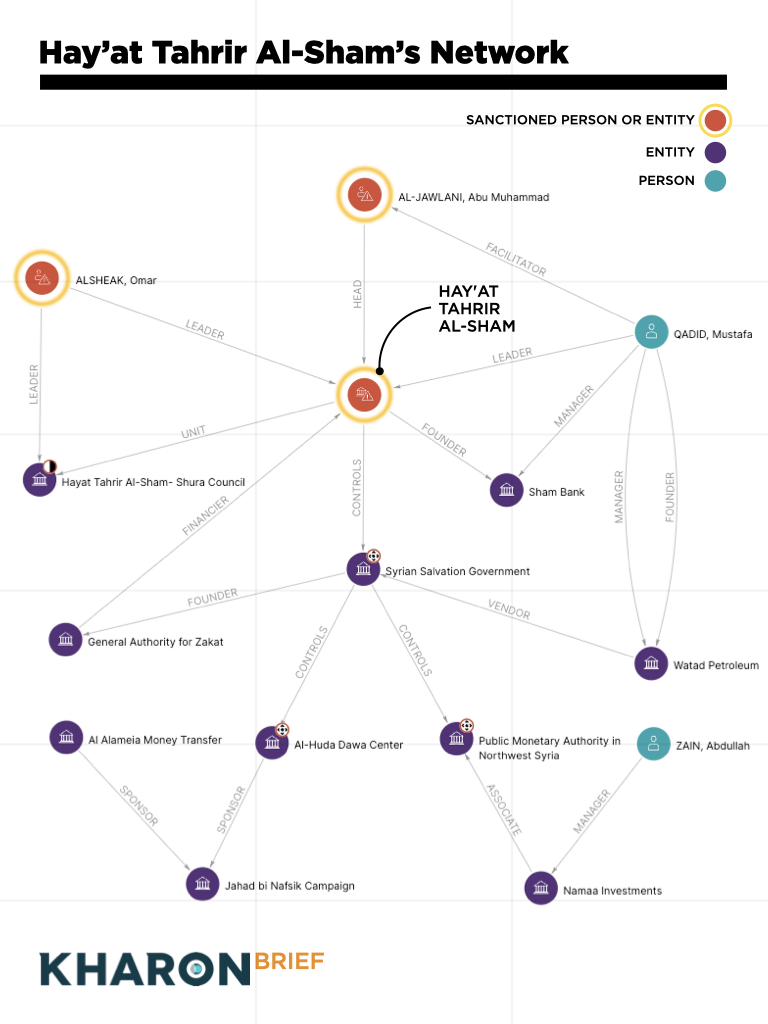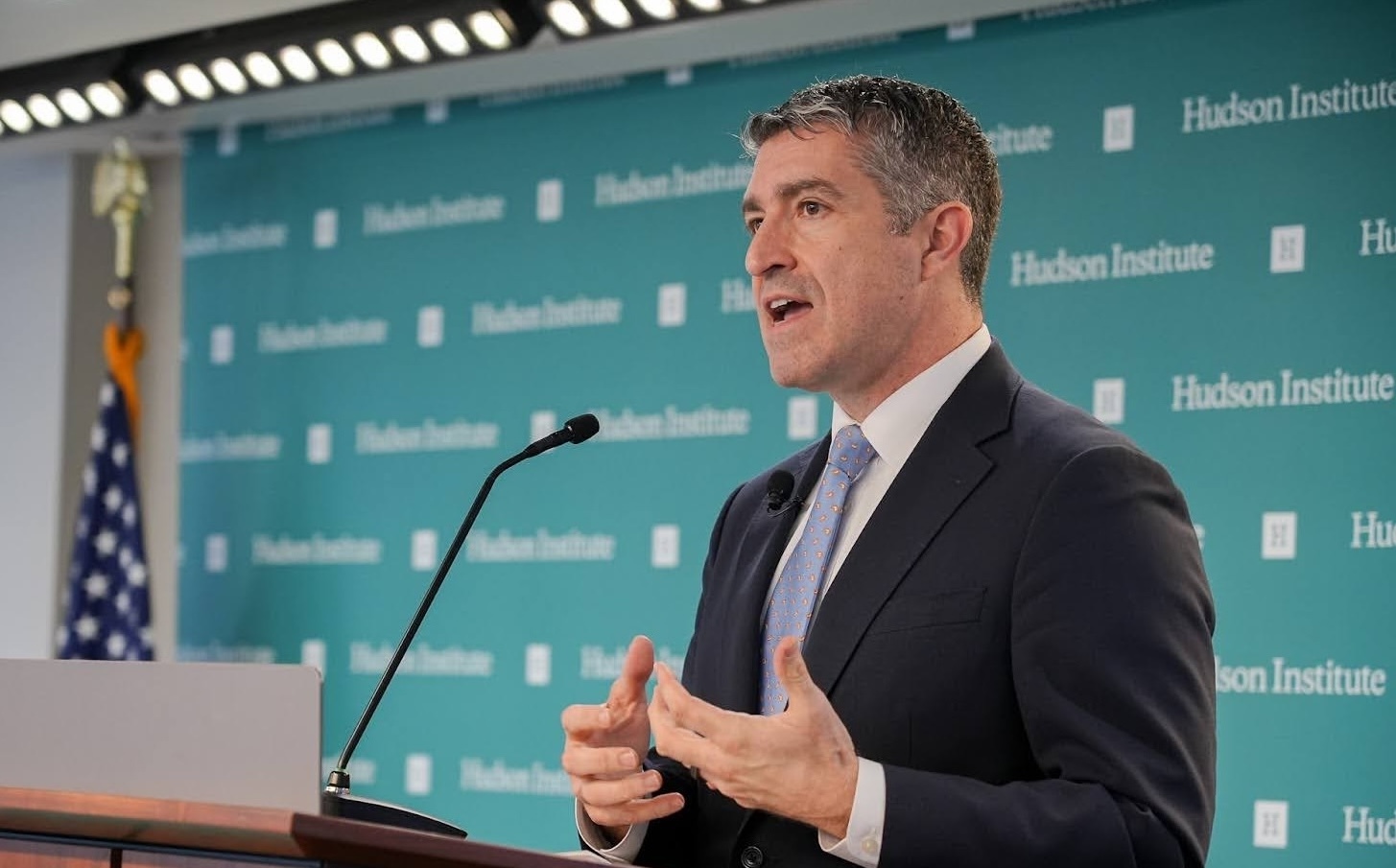Hay’at Tahrir al-Sham (HTS), the leading militant faction based in Syria's northwest, seized control of Damascus on Sunday, effectively toppling the Assad regime that has dominated the country's political and economic landscape for more than five decades.
The Assad government, which had long maintained its stronghold in the capital with support from Russia and Iran, had appeared to be firmly entrenched. HTS's rapid advance to the heart of Syria's political and military power marked a dramatic shift in the conflict, signaling a new chapter in the country's long-standing civil war.
From Militant Faction to Governing Power
HTS, originally founded in 2012 as Jabhat al-Nusra, began as a Syrian offshoot of al-Qaida in Iraq. Its leader, Abu Muhammad al-Jawlani, initially pledged loyalty to Ayman al-Zawahiri, the former leader of al-Qaida, maintaining close ties with the global jihadist network.
In 2016, however, the group underwent a strategic rebranding, led by al-Jawlani, distancing itself from al-Qaida and ultimately establishing HTS as a coalition of insurgent factions in northern Syria.
The changes included a shift toward local governance and institution-building, culminating in the creation of the Syrian Salvation Government (SSG) in northwestern Syria.
Yet, despite its rebranding efforts, HTS remains classified as a terrorist organization and is facing ongoing international sanctions. It is listed under the United Nations 1267 terrorism sanctions list and designated as a terrorist group by the U.S., U.K., and EU. In 2020, the U.S. Department of State offered a reward of up to $10 million for information leading to the arrest of al-Jawlani, citing his connection to terrorist activity.
Institutional Governance: A New Paradigm?
HTS has evolved from its militant roots, establishing a bureaucratic governance system in areas it controls while still maintaining its status as a militant group. This system includes the creation of civil, religious, and economic institutions, led by key HTS ideologues and figures.
The group has also sought to generate independent revenue streams, such as taxation and local resource management, moving away from its earlier reliance on private donations and financing from wealthy supporters abroad.
These efforts have been accompanied by a public relations campaign aimed at portraying HTS as a pragmatic force focused on Syria’s liberation rather than global jihad.
The Assad government, which had long maintained its stronghold in the capital with support from Russia and Iran, had appeared to be firmly entrenched. HTS's rapid advance to the heart of Syria's political and military power marked a dramatic shift in the conflict, signaling a new chapter in the country's long-standing civil war.
From Militant Faction to Governing Power
HTS, originally founded in 2012 as Jabhat al-Nusra, began as a Syrian offshoot of al-Qaida in Iraq. Its leader, Abu Muhammad al-Jawlani, initially pledged loyalty to Ayman al-Zawahiri, the former leader of al-Qaida, maintaining close ties with the global jihadist network.
In 2016, however, the group underwent a strategic rebranding, led by al-Jawlani, distancing itself from al-Qaida and ultimately establishing HTS as a coalition of insurgent factions in northern Syria.
The changes included a shift toward local governance and institution-building, culminating in the creation of the Syrian Salvation Government (SSG) in northwestern Syria.
Yet, despite its rebranding efforts, HTS remains classified as a terrorist organization and is facing ongoing international sanctions. It is listed under the United Nations 1267 terrorism sanctions list and designated as a terrorist group by the U.S., U.K., and EU. In 2020, the U.S. Department of State offered a reward of up to $10 million for information leading to the arrest of al-Jawlani, citing his connection to terrorist activity.
Institutional Governance: A New Paradigm?
HTS has evolved from its militant roots, establishing a bureaucratic governance system in areas it controls while still maintaining its status as a militant group. This system includes the creation of civil, religious, and economic institutions, led by key HTS ideologues and figures.
The group has also sought to generate independent revenue streams, such as taxation and local resource management, moving away from its earlier reliance on private donations and financing from wealthy supporters abroad.
These efforts have been accompanied by a public relations campaign aimed at portraying HTS as a pragmatic force focused on Syria’s liberation rather than global jihad.

Kharon users can explore this Insight in greater detail through the ClearView portal.
Financial Sanctions: Persistent Risks
The global community, including the U.S., EU, and U.N., has continued to target HTS and its financial network.
Recent designations have extended to financial facilitators supporting HTS operations, as well as to leaders managing the group’s economic portfolio, including those operating outside Syria.
HTS has also relied on hawala and exchange networks to move funds domestically and internationally. Hawala is an informal, trust-based money transfer system using brokers, often in regions with limited banking access. Exchange networks operate similarly, using intermediaries for transfers. Both systems are deeply embedded in Syria and neighboring areas, enabling HTS to finance its operations and governance.
Further complicating the situation, former Assad government officials and individuals tied to the regime’s financial networks have been under international sanctions for their involvement in corruption, human rights abuses, drug trafficking, and war profiteering.
Recently, these measures have extended to money service businesses (MSBs) that facilitated the transfer of millions of dollars linked to the Central Bank of Syria, Hizballah and Iran’s Islamic Revolutionary Guard Corps (IRGC).
What’s Next?
The future of sanctions against HTS and networks of associates and facilitators tied to the Assad regime remains uncertain.
So far, U.N., U.S. and EU officials have stated that the terrorist designations applied to the group and its leaders could be reconsidered in the future, though no decision appears to be imminent.
U.N. Envoy Geir Pedersen has also suggested that HTS may disband or transition into a new entity to align with its new governing ambitions.
—-—-—
Stay up to date on the latest developments in Syria and gain in-depth insights into how HTS, the Assad regime, and their networks generate, move, and hide assets by signing up for Readbook, Kharon’s weekly newsletter.
The global community, including the U.S., EU, and U.N., has continued to target HTS and its financial network.
Recent designations have extended to financial facilitators supporting HTS operations, as well as to leaders managing the group’s economic portfolio, including those operating outside Syria.
HTS has also relied on hawala and exchange networks to move funds domestically and internationally. Hawala is an informal, trust-based money transfer system using brokers, often in regions with limited banking access. Exchange networks operate similarly, using intermediaries for transfers. Both systems are deeply embedded in Syria and neighboring areas, enabling HTS to finance its operations and governance.
Further complicating the situation, former Assad government officials and individuals tied to the regime’s financial networks have been under international sanctions for their involvement in corruption, human rights abuses, drug trafficking, and war profiteering.
Recently, these measures have extended to money service businesses (MSBs) that facilitated the transfer of millions of dollars linked to the Central Bank of Syria, Hizballah and Iran’s Islamic Revolutionary Guard Corps (IRGC).
What’s Next?
The future of sanctions against HTS and networks of associates and facilitators tied to the Assad regime remains uncertain.
So far, U.N., U.S. and EU officials have stated that the terrorist designations applied to the group and its leaders could be reconsidered in the future, though no decision appears to be imminent.
U.N. Envoy Geir Pedersen has also suggested that HTS may disband or transition into a new entity to align with its new governing ambitions.
—-—-—
Stay up to date on the latest developments in Syria and gain in-depth insights into how HTS, the Assad regime, and their networks generate, move, and hide assets by signing up for Readbook, Kharon’s weekly newsletter.







